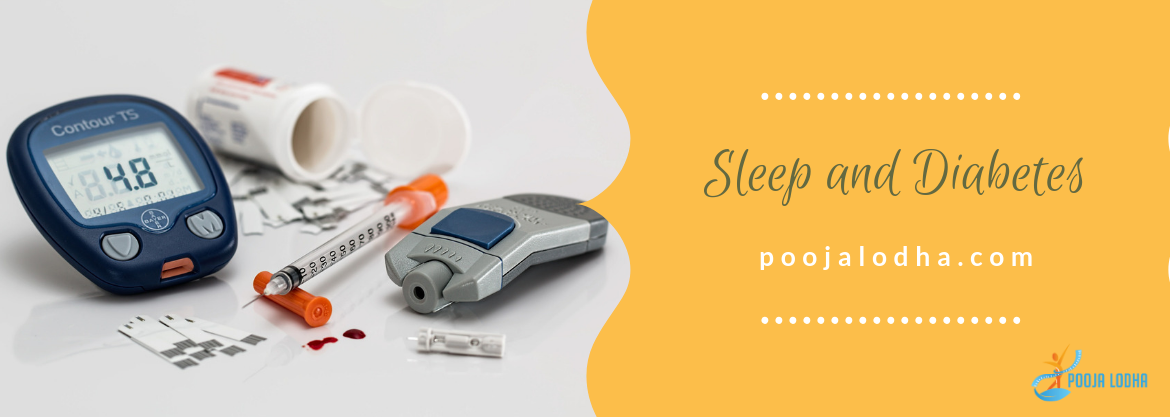Sleep and Diabetes

There is a close relationship between sleep and diabetes. Diabetes and sleep problems often go hand in hand. Diabetes can cause sleep loss and not sleeping well can increase your risk of developing diabetes. When your blood sugar is really high, your kidneys try to get rid of it by urinating. As a result, you are probably getting up and going to the bathroom all night long and not sleeping well.
How much sleep a person needs varies depending on the individual. As an example of two sleep extremes, the famous scientists Einstein and Edison had very different sleep requirements. Edison thought sleep was a waste of time, but he did take naps during the day. In contrast, Einstein slept 10 hours a night.
Healthy adults require 7 to 9 hours of sleep per night. Today the average sleep time is less than this. Studies have found that the less time people sleep, the more likely they are to be overweight. Being overweight results in insulin resistance
Low sleep results in High blood sugar
High blood sugar is a red flag for sleep problems among people with diabetes. For another reason, people who are tired will tend to eat more because they want to get energy from somewhere. That can mean consuming sugar or other food that can spike the blood sugar levels. It thus becomes important for a diabetic to have a proper meal at regular intervals so that the blood sugars are in control which will help them to sleep better at night. If you get your blood sugar under control you will get a good night sleep and wake up fresh with lots of energy.
The connection between lack of sleep and diabetes
There is some evidence that sleep deprivation could lead to a pre-diabetic state. The body’s reaction to sleep loss can resemble insulin resistance, a precursor to diabetes. The job of insulin is to help the body utilize glucose for energy. In insulin resistance, the cell fails to use the hormone efficiently, resulting in high blood sugar. Diabetes occurs when the body does not produce enough insulin or the cell can’t use the insulin properly. When insulin fails to do its job, high blood sugar builds in the body to the point where they can harm the eyes, kidneys, nerves or heart.
There are a variety of reasons for disturbed sleep in people with diabetes. Some of the causes of sleep problems can include:
Sleep Apnea – Sleep apnea is common in most people but more frequent in people with type 2 diabetes. Sleep apnea is also linked with obesity, a risk factor for diabetes. Symptoms include daytime fatigue and exaction and nighttime snoring and irregular breathing. Weight loss is the most effective treatment so far.
Neuropathy and Leg Pain – Leg pain due to neuropathy is very common in people with diabetes which causes sleep problems. There are many medications to treat neuropathy which can have a beneficial effect.
Nighttime Lows – Another reason for disturbed sleep in people with diabetes especially type 1 diabetes and type 2 who are on insulin or sulfonylurea is night time hypoglycemia.
Women going through menopause may also experience drenching night sweats which can be confused with night time hypoglycemia. In this case, it becomes important to find out whether it is menopause or low blood sugar.
Healthy Habits Help
There may be a link between sleep and blood glucose levels, but it is seen that people who keep regular sleep schedules seem to maintain better blood sugar control, it is more of a challenge if sleep is disrupted. There is also some evidence that disrupted sleep affects insulin resistance and may contribute to the development of type 2 diabetes.
When it comes to diabetes and good sleep, healthy habits always help. There is some evidence that those who exercise have better quality and quantity of sleep (as long as you don’t exercise right before bedtime). Getting enough sleep and creating healthy sleep patterns are prescriptions for good diabetes health.
Steps to better sleep
- Stick to a sleep schedule – go to bed and wake up at the same time every day. This will reinforce your body’s sleep – wake up cycle and help promote better sleep at night
- Keep blood glucose in good control
- Exercise regularly
- Pay attention to what you eat and drink – do not go to bed either hungry or too stuffed. The discomfort may keep you awake. Also, limit to what you drink before bedtime as you may need to get up to use the toilet often. Nicotine, caffeine, and alcohol deserve caution, too. The stimulating effects of nicotine and caffeine which take hours to wear off can wreak havoc with quality sleep. And even though alcohol might make you feel sleepy at first, it can disrupt sleep later in the night.
- Create a bedtime ritual – do the same thing each night to tell your body it’s time to wind up, you can either have a hot water bath, read a book or listen to music (certain chantings). Relaxing activities can promote better sleep. Try to avoid watching TV or being on other electronic devices as these can interfere with sleep.
- Get comfortable – Create a room that’s ideal for sleeping. Often, this means cool, dark and quiet. Your mattress and pillow can contribute to better sleep, too. Since the features of good bedding are subjective, choose what feels most comfortable to you. If you share your bed, make sure there’s enough room for two. If you have children or pets, set limits on how often they sleep with you or insist on separate sleeping quarters.
With healthy habits, regular exercise and good blood glucose control a person with diabetes can get a good sleep.

